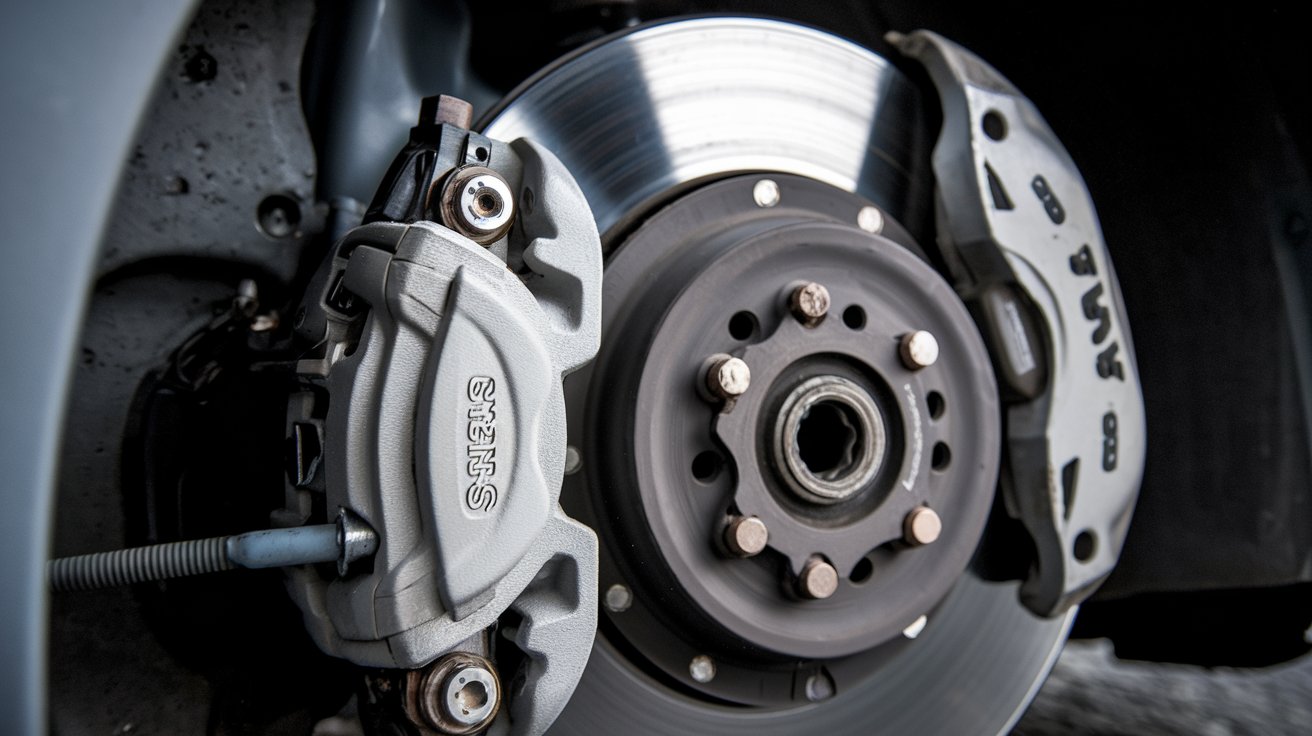
When to Replace a Car ABS Sensor: Signs of a Failure
The Anti-lock Braking System (ABS) is one of the most important safety systems in modern automobiles. Its major function is to keep the wheels from locking up during heavy braking, allowing drivers to maintain control of their cars in emergency circumstances or on slick roads. The ABS sensor is a critical component of the ABS, since it monitors each wheel’s speed and delivers data to the ABS control module. If the ABS sensor fails, the system cannot function effectively, resulting in reduced braking ability and possibly unsafe driving circumstances.
In this post, we’ll look at the purpose of the ABS sensor, the indicators of a failed sensor, and when you should replace it to keep your car safe and dependable on the road.
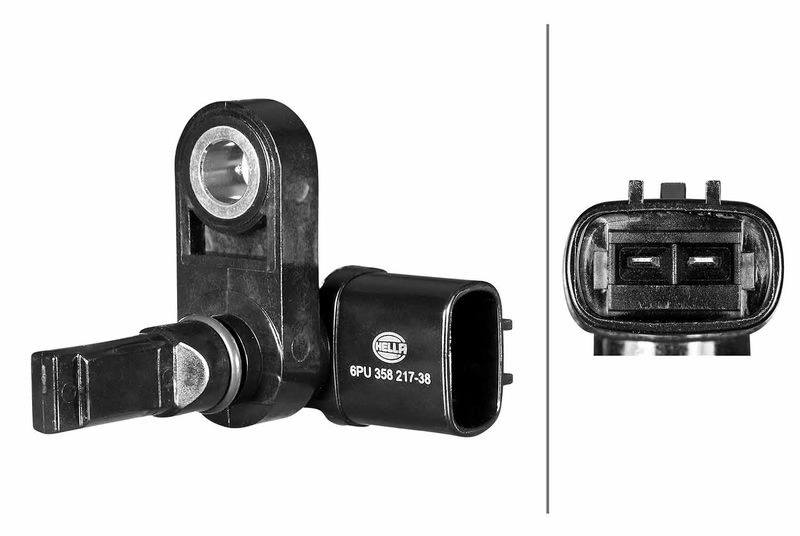
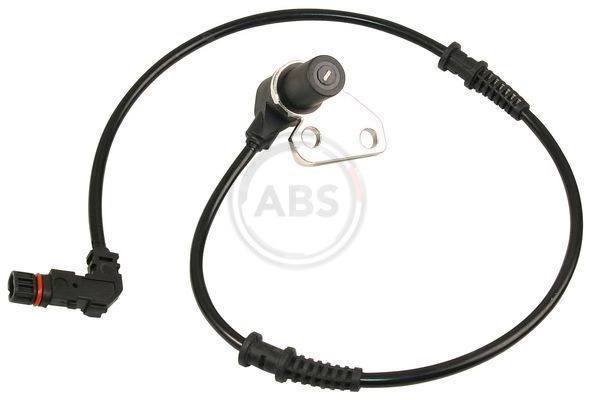
What is an ABS sensor?
The ABS sensor is in charge of continually monitoring the rotational speed of each wheel and transmitting this information to the vehicle’s ABS control module. This information is critical because it helps the ABS system to predict when one or more wheels are about to lock up. In reaction, the ABS adjusts the brake pressure to avoid wheel locking, allowing the driver to keep steering control under severe braking.
ABS sensors come in a variety of sorts, including active and passive sensors, but their essential function is the same: to provide real-time data to guarantee safe braking. When an ABS sensor fails, the ABS system is unable to correctly modulate the brakes, resulting in longer stopping distances and impaired vehicle control, particularly in emergency circumstances.
Signs of a Failing ABS Sensor
Recognizing the indicators of a failed ABS sensor early can help you prevent more serious problems with your braking system and keep your car safe. Here are some frequent indicators that your ABS sensor may require replacement:

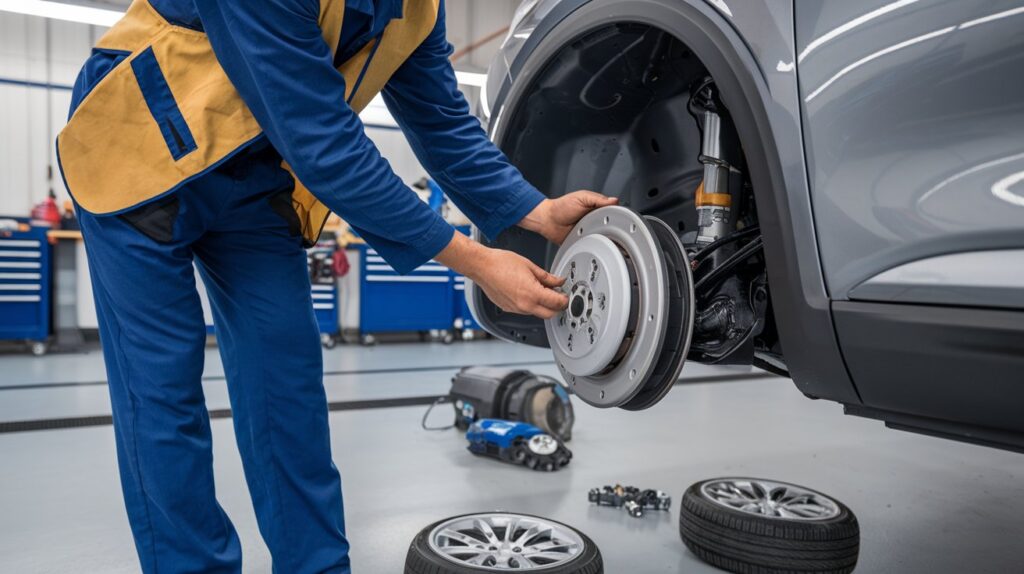
ABS Warning Light: The most typical and obvious indicator of a failed ABS sensor is the appearance of the ABS warning light on the dashboard. This indicator illuminates when the system detects an ABS issue. The vehicle’s conventional braking system will continue to work, but the improved safety features supplied by the ABS will be degraded. If this light turns on, you should get your car examined by a competent technician.
Decreased Braking Performance: If your car takes longer to stop or is less sensitive when you press the brakes, there might be an issue with the ABS sensor. A defective sensor might prevent the ABS from effectively engaging, lowering braking effectiveness, especially during emergency stops.
Locking Wheels During Hard Braking: The ABS system’s principal job is to avoid wheel lockup. If your wheels lock up during strong braking, it might indicate that the ABS sensor is not working properly. This is a severe safety issue that needs to be addressed quickly.
peculiar Sounds: Grinding, clicking, or other peculiar noises emanating from the wheels when braking might also indicate ABS sensor failure. These sounds might be generated by the ABS system attempting to engage incorrectly owing to inaccurate sensor data.
Inconsistent Brake Pedal Feel: A spongy or firm brake pedal may indicate a fault with your ABS system. If the ABS sensor is not functioning properly, it might impact how the braking system responds, resulting in an uneven brake pedal feel.
When to replace your ABS sensor?
If you notice any of the symptoms listed above, it’s time to get your ABS sensor checked and perhaps replaced. Here’s how to tackle it:
Diagnostic Check: If the ABS warning light illuminates, a diagnostic check is required to determine the problem. A mechanic will use specialist equipment to interpret the ABS code and determine if the problem is with the sensor or another component of the brake system.
Inspection: Even if the warning light isn’t on but you observe other symptoms, you should have your vehicle’s braking system fully evaluated. This involves inspecting the ABS sensors, cabling, and control module to rule out any other problems.
Replacement: Once the ABS sensor has been proven to be defective, it must be replaced immediately. Driving with a faulty ABS sensor may be dangerous, especially in rainy or slippery circumstances where the ABS system is vital for maintaining vehicle control.

Why Should You Choose SparesWorld.co.ke for ABS Sensors?
SparesWorld.co.ke understands the significance of maintaining your vehicle’s safety systems. We provide a large assortment of high-quality ABS sensors for all makes and models, assuring that your components meet or exceed OEM requirements. With quick shipment, affordable price, and exceptional customer service, we make it simple for you to keep your car operating safely and effectively.
Conclusion
Maintaining your vehicle’s ABS system is critical to your safety and the safety of others on the road. By detecting the indicators of a failed ABS sensor and replacing it as needed, you can assure maximum braking performance while avoiding costly repairs. Visit SparesWorld.co.ke today to browse our range of ABS sensors and other automotive components, and drive with confidence knowing that your vehicle’s safety features are in top shape.
Hashtags: #ABSensor #CarSafety #BrakingSystem #AutoParts #VehicleMaintenance #SafeDriving.
Internal Link: https://automotivecarindia.com/features-of-the-macpherson-strut-suspension-system/
External Link: https://carservicesinreading.co.uk/blogs/four-symptoms-of-a-faulty-abs-wheel-speed-sensor


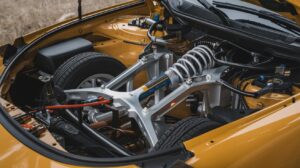

Average Rating